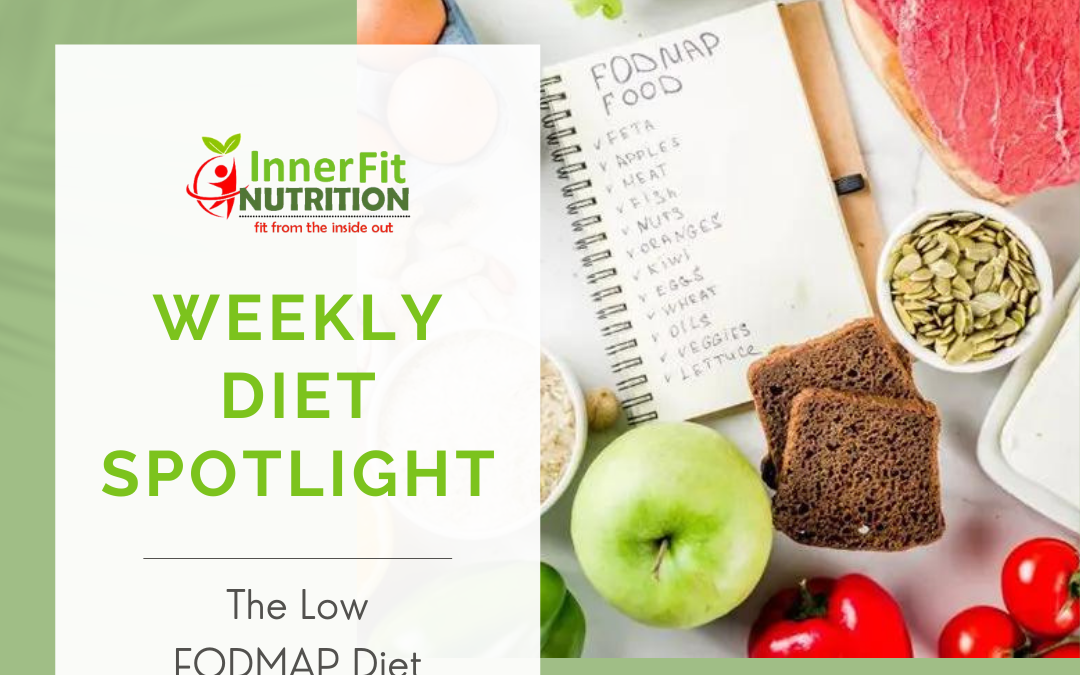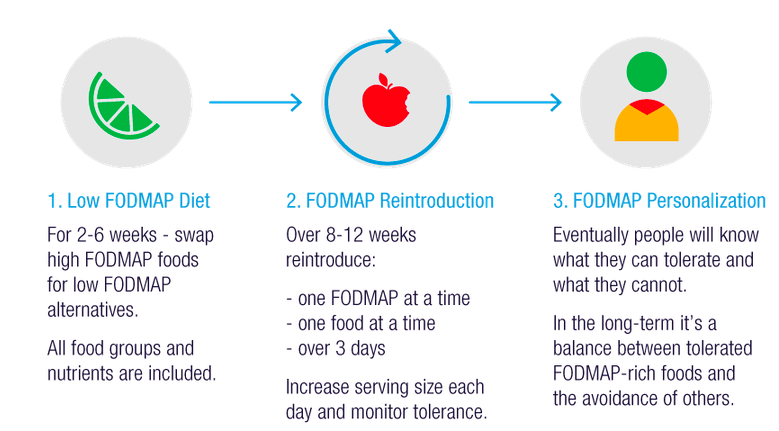Let’s be real, living with gut symptoms is just plain awful.
If you are suffering from bloating, stomach pain, wind and constant changes in bowel movements (diarrhea, constipation or both), then the low-FODMAP diet may be for you. It is often prescribed to help manage these symptoms and find your trigger foods so that you can go back to living your best life.
Intrigued? Let’s jump in.
So, what exactly is the Low-FODMAP Diet?
Not a typical weight-loss diet, the Low-FODMAP Diet is often prescribed to those with irritable bowel syndrome (IBS) to identify which foods are problematic for the individual. Through identifying this, individuals are often free from most, if not all symptoms.
The acronym FODMAP stands for fermentable oligosaccharides, disaccharides, monosaccharides and polyols. These long, hard to pronounce words are actually just types of short-chain carbohydrates that can be difficult to digest in the small intestine. Therefore, those with compromised gut health may experience adverse symptoms such as bloating, stomach pain, wind and constant changes in bowel movements (diarrhea, constipation or both) after consumption.
The diet is a three-step process beginning with elimination of high fodmap foods, slow introduction then diet personalisation.
It should be noted that doing the low FODMAP diet alongside a nutritionist or dietitian is the best way to feel supported and confident in finding your triggers. This will not not only help the overall process, but also stop you from having to repeat it.
Not For the Long-Term…
As you can imagine, living a life free of symptoms such as bloating, stomach pain, wind and constant changes in bowel movements (diarrhea, constipation or both) is a dream for an individual with IBS. In many cases, this may tempt the individual to stay on this diet for a long period of time.
However, it must be noted that this diet is not made for long term maintenance. This is because it is highly restrictive, which means that you may miss out on vital nutrients and can be detrimental to gut health if sustained for the long-term.
Another factor to note is that it is not a weight-loss diet. The low FODMAP diet should only be attempted for individuals with IBS and ideally alongside a nutritionist or dietitian.
So, should you try The Low FODMAP Diet?
First things first, the low FODMAP diet has been developed for people with IBS or other severe gut disturbances. If you think you may have IBS through the information outlined in this article, it is important to get a diagnoses from your doctor or general practitioner. If not – then this diet isn’t for you.
It is important that the FODMAP diet is followed under the guidance of a qualified nutritionist or dietitian to ensure that you are following it safely and efficiently. As a holistic nutritionist, I aim to provide you with the tools and knowledge to guide you through your personal health journey. If you are eager to see whether the low FODMAP diet is right for you and how to implement it, click here to book an Initial Nutrition Consultation.
Written by:
Mollie Caughey-Wade,
Clinical Nutritionist (BSc).


